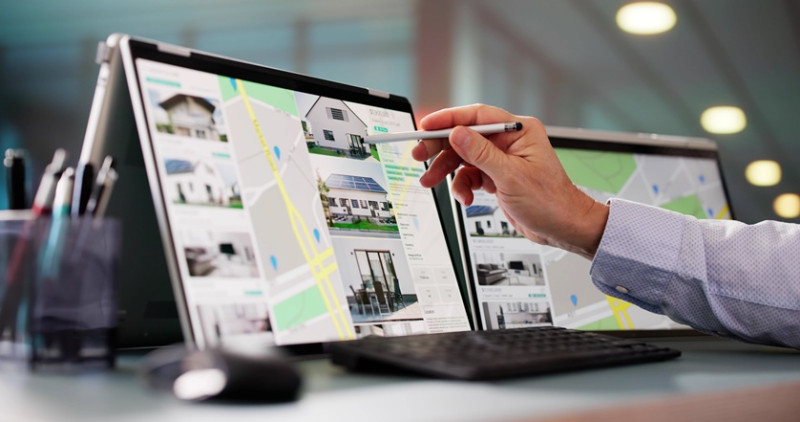
Being a successful property manager in the UK involves much more than collecting rent and organising maintenance. Whether you're overseeing a single rental property or managing a portfolio of homes, understanding the nuances of modern property management can make all the difference. From choosing the right materials for renovations to dealing with tenant expectations, we’ve put together a series of practical, easy-to-follow tips aimed at DIY enthusiasts, young professionals, architects, designers, and professional tradesmen across the UK.
1. Prioritise Regular Maintenance and Inspections
Proactive maintenance is one of the easiest ways to prevent costly repairs and keep tenants happy. Schedule regular property inspections at least twice a year and aim to address any signs of wear and tear immediately. Simple tasks like checking guttering, inspecting roofs and windows for draughts, and arranging yearly boiler checks help avoid larger problems later.
For DIY enthusiasts, many minor maintenance jobs can be handled in-house, such as repainting, replacing sealants, or fixing loose door handles. For more complex systems like plumbing and electrics, don’t hesitate to bring in tradesmen who specialise in these areas. Over time, building relationships with reliable local professionals can streamline your property management process.
Another tip is to create a seasonal checklist – spring is perfect for external painting and landscaping, while autumn is ideal for checking insulation and heating systems before winter sets in.
2. Renovate with Durability and Versatility in Mind
Property managers should aim to make design and material choices that are not only stylish but also built to withstand daily wear. For example, in kitchens and bathrooms – high-traffic areas – prioritise water- and scratch-resistant surfaces such as quartz countertops or vinyl flooring.
When selecting finishes and colours, opt for neutral palettes that appeal to a broad audience. This makes the space feel more open, modern, and easier for new tenants to visualise as their home. Interior designers and decorators may want to incorporate multipurpose furniture to help spaces double as home offices or guest rooms, appealing to today’s remote-working professionals.
A well-renovated property with durable, low-maintenance materials minimises repair requests, reduces void periods, and attracts higher-quality tenants willing to pay premium rent.
3. Understand the UK Legal Obligations
Staying compliant with property laws in the UK is non-negotiable. As a property manager, you must stay updated with the latest regulations, including the Housing Health and Safety Rating System (HHSRS), gas safety, electrical compliance, EPC ratings, deposit protection schemes, and licensing requirements for HMOs (Houses in Multiple Occupation).
Each UK jurisdiction may have slightly different rules – for instance, requirements can vary between England, Scotland, Wales, and Northern Ireland. Knowing the specific rules in your locality is key to avoiding fines or legal disputes. Subscribe to property newsletters or join landlord associations to receive timely updates on legislation changes.
Professional tradesmen and architects involved in renovation or extension projects should also ensure any structural adjustments meet building regulation standards. For larger projects, planning permission may be necessary, particularly for listed buildings or properties in conservation zones.
4. Efficiently Manage Tenants and Communication
Clear and professional communication with tenants builds a respectful, positive relationship and can prevent disputes in the future. Always provide written documentation for agreements, maintenance schedules, and rent due dates. Digital tools, such as property management software or even simple apps like WhatsApp or email, can help streamline communication.
Responding quickly to tenant inquiries and maintenance requests helps retain good tenants, reducing turnover and the associated costs of void periods and reletting. Set expectations from the start – include contact hours or emergency procedures in the tenant welcome pack.
For young professionals or students, online portals are a convenient way to submit maintenance tickets, view tenancy details, and access their deposit information. Incorporating tech can give your service a modern edge, especially in dense urban markets like London, Manchester, and Birmingham.
5. Optimise Property Value Through Smart Upgrades
You don’t need a full refurbishment to increase a property's rental or resale value. Strategic, budget-friendly upgrades – like replacing outdated lighting with LED fixtures, installing smart thermostats, or refreshing tired cabinetry with new fronts – can dramatically change how a space feels.
Architects and designers can play a vital role here, suggesting layout tweaks that enhance natural light or functionality without requiring extensive renovations. For example, knocking through a cramped kitchen and dining room into an open-plan layout is a high-ROI option that's popular across UK households.
Energy efficiency upgrades are also essential. Tenants are increasingly aware of energy costs and will pay more for homes with good insulation and efficient heating systems. Consider upgrading windows to double or triple glazing and installing loft insulation to improve EPC ratings, which is now a legal requirement in many cases.
6. Keep Track of Finances and Plan for Contingencies
Thorough financial planning helps any property manager stay profitable. Keep detailed records of income, expenses, invoices, and tax obligations. Many landlords find it beneficial to use specialist property finance software, while others prefer working with a dedicated accountant familiar with rental property management.
Creating an emergency fund is also wise. Unexpected issues – such as a failed boiler in mid-winter or accidental damage caused by tenants – can be stressful and expensive if you aren't financially prepared. Aim to set aside a percentage of rental income each month to cover unplanned expenses.
Here's a simple breakdown of key expense categories for UK property managers:
| Expense Category | Examples |
|---|---|
| Maintenance & Repairs | Plumbing, electrical, roofing, painting |
| Utilities (if included) | Gas, electricity, water |
| Professional Fees | Letting agents, legal fees, accounting |
| Compliance Costs | Certificates, inspections, licensing |
| Upgrades & Renovations | Kitchen refits, carpet replacement, insulation |
7. Build Relationships with Skilled Local Tradespeople
Having a go-to team of reliable electricians, plumbers, joiners, and painters is a game-changer for any property manager. Developing good relationships with local experts means faster response times in emergencies and often better pricing on routine jobs.
If you manage properties in more than one region, try to establish a trusted contact in each key location. Sites like Checkatrade, Rated People or trust-local directories offer verified reviews that can help identify reputable tradesmen. Likewise, word-of-mouth referrals from other landlords or designers can be a great shortcut to finding quality help.
Architects and designers benefit from these collaborations too, ensuring that renovation plans are executed efficiently and up to standard. Additionally, tradespeople familiar with your properties can often spot upcoming issues early during routine visits, allowing for preventative action.
8. Stay Ahead with Technology and Digital Tools
Technology can significantly simplify property management. Tools like digital inventory systems, cloud-based financial tracking, virtual property tours, and e-signature platforms speed up processes and improve accuracy.
Property managers in the UK can use platforms such as Arthur, Landlord Vision, or Hammock to manage everything from rent collection to repair scheduling. These tools often integrate with tenant portals, reducing miscommunication and paperwork.
Additionally, using smart home technologies like thermostats, doorbell cameras, and leak detection sensors not only improves tenant security and convenience but can also help you identify risks before they become liabilities.
Final Thoughts
Whether you're a first-time property manager or a seasoned professional, applying these tips can help improve tenant satisfaction, lower costs, and increase the value of your investments. The UK rental market is competitive and highly regulated, but with sustainable materials, reliable partnerships, tech integration, and tenant-centric approaches, you can thrive.
From professional tradesmen looking to expand their services to hands-on landlords renovating for the first time, property management is a rewarding but complex venture. Stay informed, plan strategically, and always aim for long-term quality over short-term convenience.






